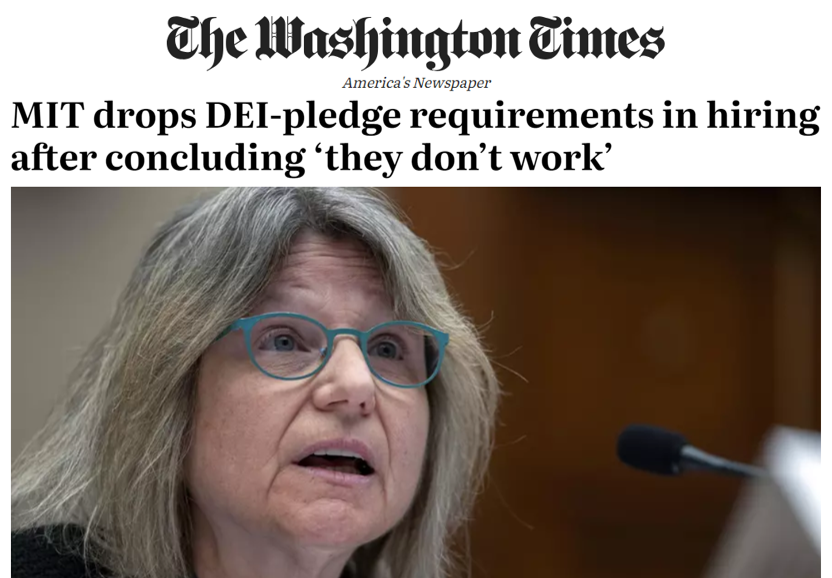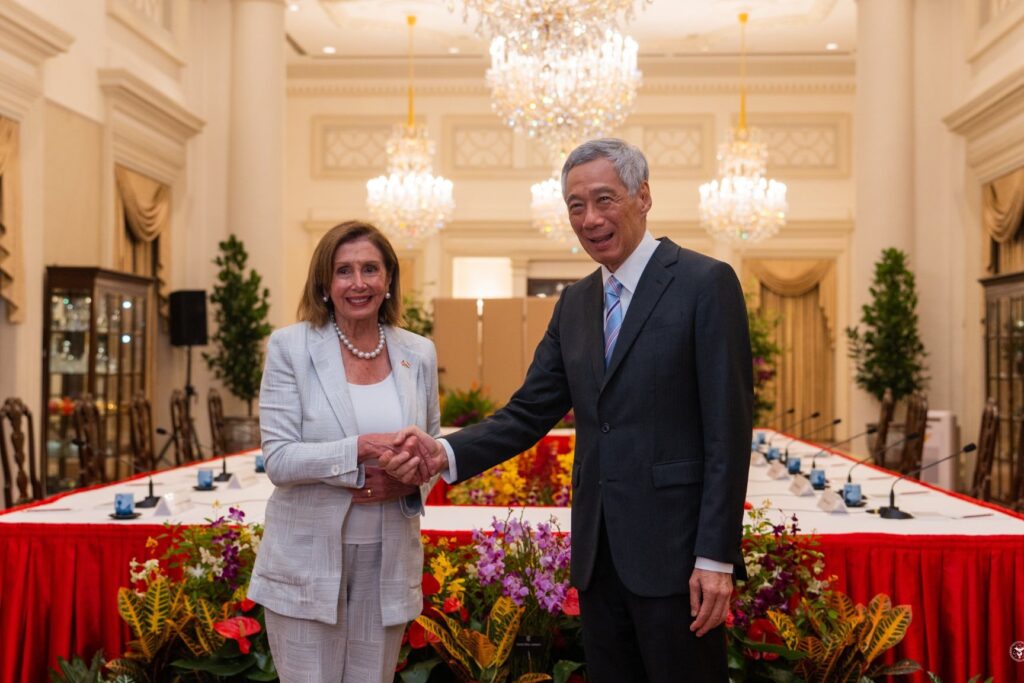MIT Rolls Back DEI Hiring Policies

Massachusetts Institute of Technology (MIT) has dropped DEI policies for enforcing ideological litmus tests as hiring requirements.
Applicants have previously been screened according to their personal statement of support for including various identity groups, including ideological identities. See quote from article below:
Applicants were told to write a statement showing that “you care about the inclusion of many forms of identity in academia and in your field,” including race, gender, sexual orientation, nationality, religion, age and “ability status.”
Candidates were also informed that “it may be appropriate to acknowledge aspects of your own marginalized identity and/or your own privilege,” but that the focus of the statement should be on what they have done in previous jobs and would do at MIT to advance the DEI agenda.
“Is that an ideological litmus test? I believe it is, especially when you start to see how these statements are used in practice,” Steve McGuire, a fellow at the American Council of Trustees and Alumni, wrote on the social-media platform X.







